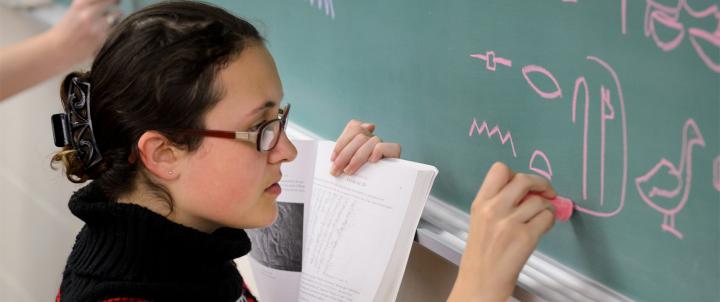All the members of the Department of Global Languages and Literatures at Hood College strongly believe Black Lives Matter. We stand by and support our Black students and colleagues. We have watched the recent horrific events in Georgia, Minnesota, and elsewhere with great sadness and pain and have been reminded that racism, systemic racism, violence, and state violence against the Black community are longstanding and ongoing problems that we as a nation have failed to address. We view this tragic moment as a call to action. We as a department need to do more, both in and outside of the classroom, to address the daily traumas our Black students and colleagues experience.
As Humanists and scholars of global languages and cultures, we are well aware of our responsibility to teach our students about racism and the dangers of authoritarianism. The societies we study have perpetuated some of the worst crimes against humanity. We see the enduring effects of colonialism, ethnic cleansing, the Holocaust, and ruthless dictatorships to this very day. As language professors, we recognize that language is power; it forms the basis of societal and social hierarchies. Language can empower or disempower, include or exclude, inspire or hurt, meaning we must take great pain to ensure that all voices are heard equally in our democracy. If we do not critically examine systems of power through language, we fail to protect our democracy and ensure social justice for all.
In order to combat racism and authoritarianism, and therefore help all students, faculty, and staff at Hood College realize their full potential in our liberal democracy, we pledge to do the following:
1. We pledge to review our curricula and pedagogies so that they incorporate anti-racist and anti-authoritarian principles.
2. We pledge to make all of our courses inclusive for ALL students.
3. We pledge to teach cultural empathy. We strengthen ourselves and our community when we appreciate and understand different cultures in comparison with our own.
4. We pledge to teach our students that societies and cultures are imperfect and complicated, and that learning about these imperfections is the first step to meaningful improvement and change.
5. We pledge to teach our students that societies are comprised of many cultural traditions and that not all voices in those traditions are heard or heard equally. We must learn to listen to all voices and learn to use speech to empower others.



